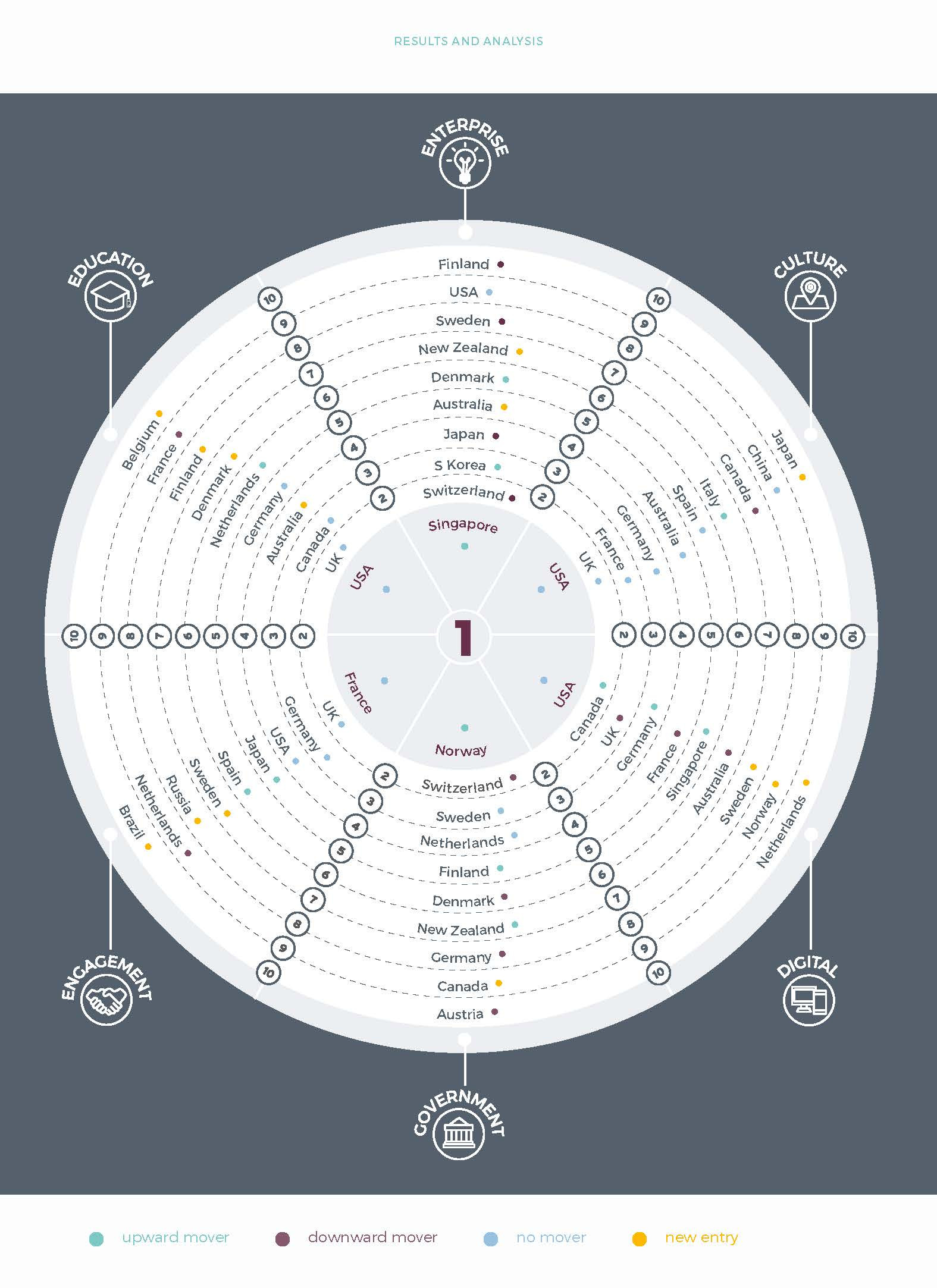Increasing Soft Power of Russia
In
Log in if you are already registered
According to the “The Soft Power 30” index published on June 14, Russia made it to the 27th place. Jonathan McClory admits that it can be quite surprising. However, he argues that Russia is a diplomatic powerhouse with unique capabilities. Seems Russian soft power has risen last year.
On June 14, 2016 Portland, a strategic communications consultancy, has presented the second edition of “The Soft Power 30: A Ranking of Global Soft Power” which was again created in association with Facebook. When the report became officially available on the net, we have found Russia on the 27 line in the list. As Jonathan McClory, the index author, admits himself, Russia’s entry into the top 30 for 2016 can be quite surprising. Even though concept of soft power is popular worldwide, including our country, many experts doubt Russian ability to accumulate it. According to Joseph Nye, who introduced this theory 25 years ago, there are three main ways for an international actor to influence others: through coercion, payment, or attraction. It is a continuum between hard and soft power and professor Nye thinks that Russia got his idea wrong. He criticizes president Vladimir Putin and concludes that capacity of Russia to attract others will continue to decline. His arguments are definitely convincing, so, how has Russia made it to the index, which professor Nye described as “the clearest picture to date of global soft power” [1]?

The first things that probably comes to mind is Russian culture. No doubts it is an important resource of soft power. However, the description of strengths starts with praising Russia’s media, which are available across the globe in multiple languages and have very high ratings. Mr McClory has not omitted culture, but has put Russian diplomacy before it. To him Russia has re-established itself as a diplomatic powerhouse taking the lead with other top powers in dialogue to tackle issues of global security. In his interview to TASS Mr McClory said that Russia possess unique capabilities and that international cooperation with Russia brings the real results.
It is always good to be acknowledged, but right now it is even better, because Russia was out from the 2015 edition of the Soft Power 30. When Mr McClory were developing his methodology at the Institute for Government, he ranked Russia almost the same: it was the 26th in 2010 and the 28th in 2011 and 2012. Nice to see Russia is back. Such positive trends are good news, especially when we can track them through different indexes. While Russia is ranking the 52th in “Country RepTrak: The World’s Most Reputable Countries” and the 29th in “Monocle Soft Power Survey”, it is the 5th in “Elcano Global Presence Report” and jumped 3 lines up to the 22th in “Anholt-GfK Roper Nation Brands Index” in 2015. There is a chance that changes in perception of global publics can lead to new investments and help to develop discourse on sanctions lift.

However, soft power indexes shouldn’t be taken too seriously. They are interesting and they are a soft power resource themselves, but causal relationships between resources and outcomes are unclear. It is true that soft power is difficult to maintain and implement. Government can invest a lot in it and still get almost nothing. Dr Till Geiger wrote once that professor Nye repeatedly acknowledges that policymakers are hard to persuade of the importance and efficacy of soft power and the problem is that he does not provide a compelling case that spending on soft power would be more effective than spending on military [2]. In Russia not only politicians argue that soft or smart power has little meaning in international affairs, but leading scholars as well. Professor Sergey Karaganov clearly states that present situation pushes Russia to use hard power and that majority of countries in the modern world can’t follow Germany example to gamble on economic and soft power.
Moreover, when a state starts to exercise too much soft power, especially via media, it can actually lead to negative soft power effects. People usually do not like a feeling of being manipulated. Josef Joffe has described a range of situations in his pieces about the United States to show how such dominance leads to resentment and even called it “the curse of soft power”. The results of “The Soft Power 30” can be useful for Russians to remind how it is important to pay attention to this issue. It would be really sad if after all the efforts to develop high quality international media, Russia will end up the same way as China. For a few years China constantly struggles with discourse of its charm offensive and discussions on its $10 billion budget for overseas propaganda deals.
We should always remember about limitations of soft power when we discuss results of indexes, surveys and reports. The concept is barely suitable for empirical research with quantitative methods. Professor Nye writes about it himself explaining why a soft power index is so problematic to create [3]. From this point of view, his theory is analytically weak, it is quite vague. We still need to introduce a better approach to soft power assessments. We need to work hard on validation procedures. Nevertheless, it should be done, as no one denies importance of intangible resources of power. We can use different concept and term for them, but soft power does exist.
In times when we facing trends on growing violence soft power indexes are even more valuable. To remind humanity that there are not only military and economic power. Maybe even to inspire us. Despite the rise, Russia scores 46.58. Unites States, which got the 1th place, scores 77.96. Mr McClory said that scandals are weakening Russia. He has mentioned corruption, sport doping and discrimination against minorities scandals, which can be more or less solved by the state. But what to do with cases when ordinary people involved in scandals? Unfortunately, there are too many evidences of Russians deviant behavior on the web and they do harm soft power of Russia. “The Soft Power 30” index shows that image of Russia is not as bad as it sometimes seems. This index can surprise and make think about possible misperceptions. But could it be that getting better positions in such indexes will influence not only people outside of Russia, but Russians also? Could it be that a nation so proud of their country will want to move up from the 27th place?
1. McClory, J. 2015. The soft power 30: A global ranking of soft power. Portland.
2. Geiger T. The Power Game, soft power and the international historian. // Soft power and US foreign policy: Theoretical, historical and contemporary perspectives. / Ed. I. Parmar, M. Cox. New York: Routledge, 2010. P.86-87.
3. Nye J.S. Power and foreign policy. // Journal of Political Power. 2011. Vol.4. No.1. P.10.





